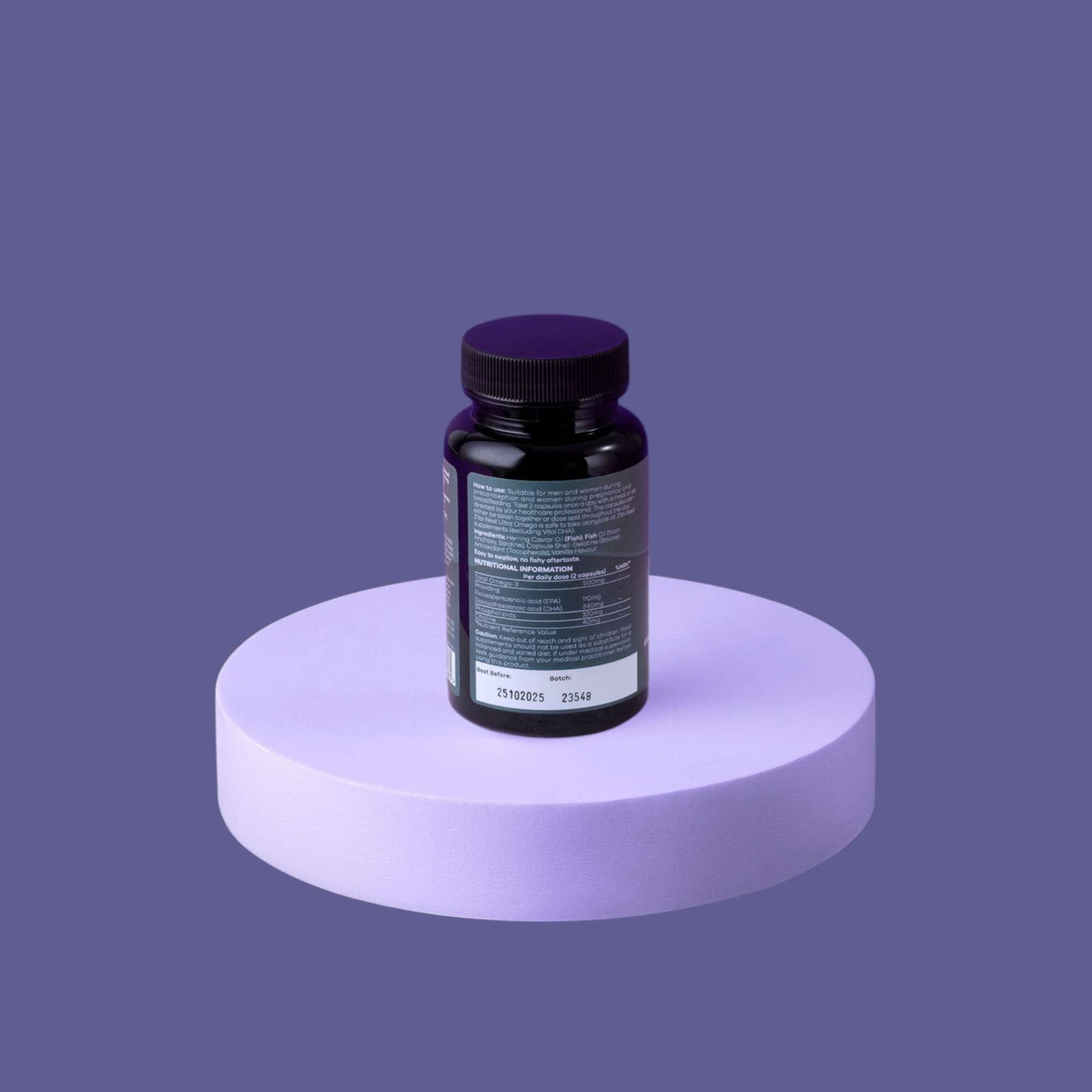Omega 3
Omega-3 fatty acids support hormone balance, cellular structure and early foetal development across reproductive stages.
Female Fertility
Omega-3 fatty acids from fish oil, particularly EPA and DHA, contribute to hormonal regulation, inflammatory balance and endometrial receptivity. DHA is a structural component of ovarian tissue, and adequate intake may help support cervical mucus quality and follicular development.
Male Fertility
DHA is a key structural element in the sperm membrane, influencing motility, morphology and membrane fluidity. Omega-3 supplementation is frequently included in male fertility support where oxidative stress or poor sperm parameters are present.
Pregnancy
Omega-3 one of the most widely recommended supplements in pregnancy. DHA supports foetal brain and retinal development, while EPA contributes to maternal cardiovascular and inflammatory regulation. Adequate omega-3 intake is associated with healthy birth outcomes and neurological development.
Postnatal
Omega-3 fatty acids continue to play a role postnatally in maternal mood regulation, especially in the early postpartum period. DHA is also passed through breast milk, supporting infant brain development. It supports joint and tissue recovery after birth and may be beneficial during breastfeeding.







.jpg?v=1738933487809&options=w_1000)

